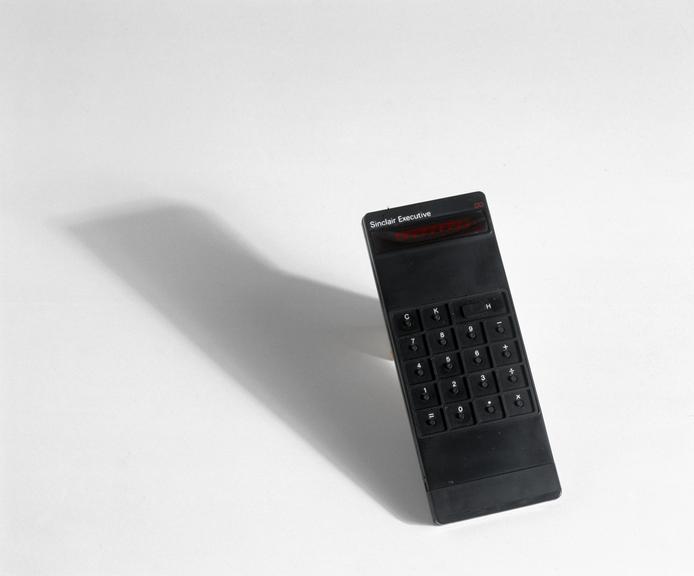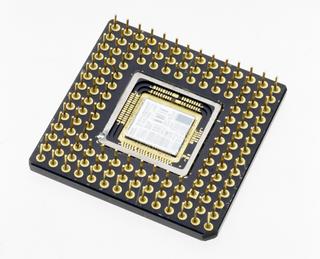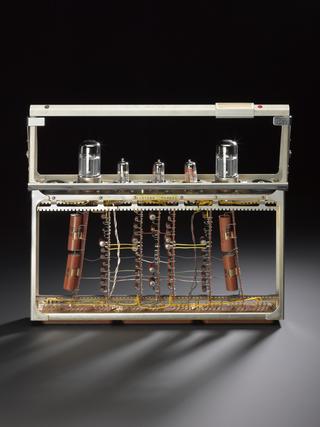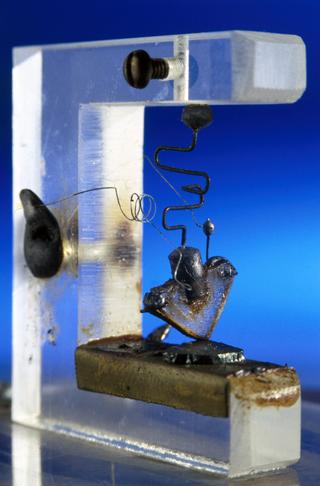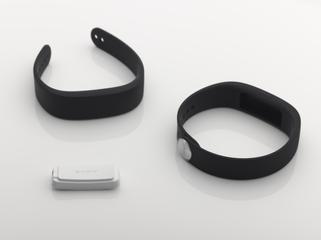Sectioned Sinclair Executive pocket calculator
Sinclair Executive Electronic Pocket Calculator, Sectioned
More
The Sinclair Executive Electronic Pocket Calculator was the first that could really fit into a pocket. Clive Sinclair (b. 1940) was able to achieve this by reducing the power input demanded by the calculator chip. The calculator was capable of addition, subtraction, division and multiplication, and was able to store a constant. It was one third the size of any of its competitors in 1972 and cost half as much.
- Materials:
- plastic (unidentified) and electronic components
- Object Number:
- 1974-502/1
- type:
- electronic calculators and calculators
